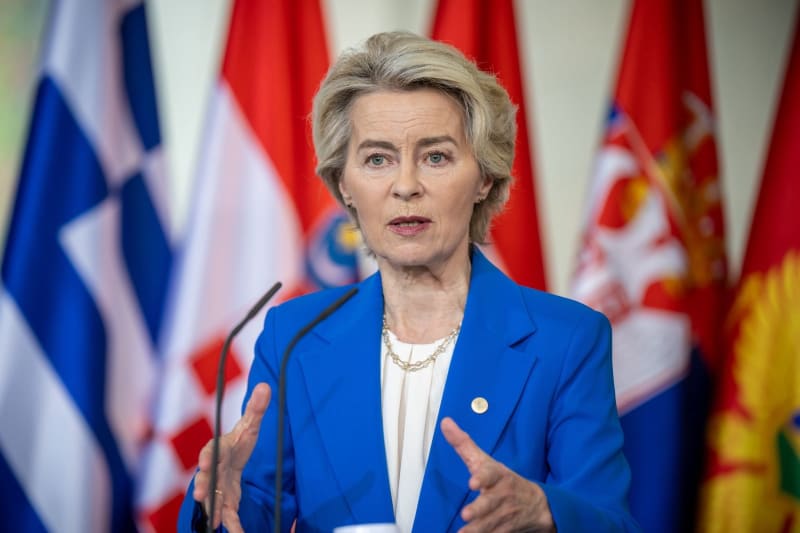On Monday, the European Union imposed sanctions on three Iranian airlines—Saha Airlines, Mahan Air, and Iran Air—following Iran’s provision of ballistic missiles to Russia for use in the ongoing conflict in Ukraine. European Commission President Ursula von der Leyen expressed that the Iranian regime’s support for Russia’s aggression is intolerable and must be halted. The sanctions entail a freeze on assets within the EU and a travel ban on specific individuals, effective immediately upon publication in the EU Official Journal. Additionally, two Iranian procurement firms—Teyf Tadbir Engineering Company and Basamad Electronic Pouya Engineering Company—were included in the sanctions package, which targeted a total of seven organizations and individuals, including Iranian Deputy Defence Minister Seyed Hamzeh Ghalandari and senior leaders from the Islamic Revolutionary Guard Corps (IRGC).
The EU’s decision represents a significant escalation in their stance against Iran, which has previously been warned multiple times about the consequences of supplying ballistic missiles to Russia. This action breaches a new level of unacceptable behavior, and European authorities stress that Iran’s denials of weapon provisions are inconsistent with the evidence. Tehran claims its strategic partnership with Moscow does not involve military involvement in the Ukraine conflict and labels providing military assistance to warring nations as inhumane. This confrontation highlights the EU’s firm resolve in addressing geopolitical threats and reasserting its commitment to supporting Ukraine.
The sanctions coincide with a meeting of EU foreign ministers in Luxembourg, where they evaluated additional support mechanisms for Ukraine in response to the Russian war of aggression. Hungary’s longstanding opposition to sending arms to Ukraine remains a significant challenge, as Budapest argues that military contributions would only prolong the conflict. As the EU confronts this blockade, plans were discussed to modify the European Peace Facility (EPF)—a vital fund of €6.6 billion ($7.2 billion)—to allow voluntary contributions instead of mandatory ones, a potential workaround to Hungary’s obstruction.
In a parallel move, the EU renewed sanctions against certain Russian entities accused of undermining the democratic processes in Moldova, particularly ahead of an important referendum on EU membership and upcoming presidential elections. Evrazia, a Russia-based NGO aimed at promoting Russian interests abroad, was targeted along with its director, Nelli Parutenco. EU chief diplomat Josep Borrell criticized Russia for using hybrid tactics to interfere in the electoral process, highlighting the broader regional implications of Russia’s aggressive posturing.
Amid these diplomatic discussions, Ukrainian Foreign Minister Andrii Sybiha participated via video link, contributing to the dialogue on weapon deliveries to bolster Ukraine’s defenses against Russia. Borrell acknowledged Sybiha’s engagement and reaffirmed the EU’s pledge for new military assistance. Furthermore, British Foreign Minister David Lammy’s presence marked a historic moment as he participated as the first British foreign minister to join a gathering of EU foreign ministers independently since the UK’s departure from the EU in 2020.
In summary, the recent EU sanctions on Iranian airlines and firms reflect a coordinated response to Iran’s military support for Russia in Ukraine, while also addressing Russian efforts to destabilize political processes in Moldova. The challenges from Hungary regarding military assistance to Ukraine and the larger ramifications of geopolitical tensions in Eastern Europe underscore the complexities the EU faces. As the situation evolves, the EU continues to seek innovative solutions to ensure support for Ukraine and protect democratic integrity across the region, highlighting the ongoing significance of cooperative international diplomacy.

